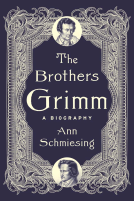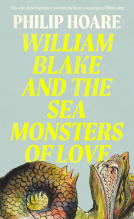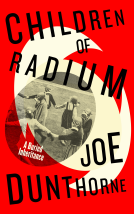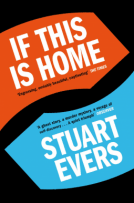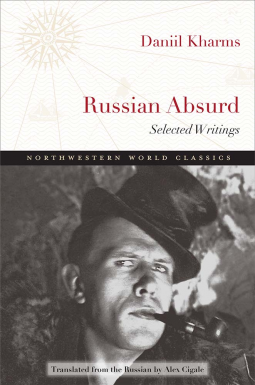
Russian Absurd
Selected Writings
by Daniil Kharms
This title was previously available on NetGalley and is now archived.
Send NetGalley books directly to your Kindle or Kindle app
1
To read on a Kindle or Kindle app, please add kindle@netgalley.com as an approved email address to receive files in your Amazon account. Click here for step-by-step instructions.
2
Also find your Kindle email address within your Amazon account, and enter it here.
Pub Date 15 Feb 2017 | Archive Date 15 Mar 2017
Description
A writer who defies categorization, Daniil Kharms has come to be regarded as an essential artist of the modernist avant-garde. His writing, which partakes of performance, narrative, poetry, and visual elements, was largely suppressed during his lifetime, which ended in a psychiatric ward where he starved to death during the siege of Leningrad. His work, which survived mostly in notebooks, can now be seen as one of the pillars of absurdist literature, most explicitly manifested in the 1920s and ’30s Soviet Union by the OBERIU group, which inherited the mantle of Russian futurism from such poets as Vladimir Mayakovsky and Velimir Khlebnikov. This selection of prose and poetry provides the most comprehensive portrait of the writer in English translation to date, revealing the arc of his career and including a particularly generous selection of his later work.
Advance Praise
"Reading this book makes me want to put myself in Kharms’s way." —Gary Shteyngart, author of The Russian Debutante’s Handbook, Absurdistan, and Super Sad True Love Story
Available Editions
| EDITION | Other Format |
| ISBN | 9780810134577 |
| PRICE | US$24.95 (USD) |
| PAGES | 278 |
Featured Reviews
 Bookseller 369913
Bookseller 369913
I'd never heard of Kharms before seeing this offered as a reading copy, but after just a few pages, I felt I'd encountered him before. If you strip away the picaresque narrative of Bulgakov's Master & Margarita and replace it with Kafka's Octavo Notebooks, you'd be halfway to describing Kharms's style; Soviet absurdism with an eye for cataloguing the infinitesimal detail of the world around us in a bid to understand the depth of the human condition.
Organised chronologically rather than by genre, in this collection, you find snippets of prose next to letters next to aphorisms next to existential ponderings next to literary criticism next to short philosophical treatises. The absurd gives way to the logical, which in turn gives way to the profound, sometimes within just a few sentences.
Since falling in love with Kafka, I've been searching for a writer who imbues their work with the same desperate urge to compile and understand the world's minutiae through the art of prose. I think I've found them. Kharms needs a wider audience and a collection like this seems essential to make that happen!
 Mandy J, Reviewer
Mandy J, Reviewer
Daniil Kharms (1905-1942) was one of the Soviet Union’s most important writers during the 1920s and 1930s, but fell foul of the regime, was arrested in 1941 and imprisoned in a psychiatric hospital where he died during the siege of Leningrad and buried in a mass grave. In a timely quirk of fate, activists now believe they have found the likely location of the grave. This volume is a selection of his writings, most of which were suppressed during his lifetime. His work is not always easy to get to grips with as his decidedly modernist and avant-garde work is not to everyone’s taste. His stories are often called “anti-stories” as they usually eschew narrative and are often absurd with a surrealist twist. Often they are very short indeed, only a paragraph or a couple of sentences, and often completely pointless – or so it seems to me. Black humour, the grotesque, violence and death are constant themes. Personally I don’t find them funny, or even amusing. This is not my sort of writing. However, I am aware of his place in Soviet literature and I was pleased to discover more of his work. An important book for anyone interested in Russian literature.
 Educator 144982
Educator 144982
Everyone should read Daniil Kharms--this is writing that is original, hilarious, and tragic all at once.
 Iľja R, Media/Journalist
Iľja R, Media/Journalist
The bizarre and harrowing existence of Danil Kharms, Russian, though hardly Soviet, experimentalist. These fragmental excerpts from Kharms' tortured genius offer, well, if nothing else a fairly plausible depiction of what happens when a gentle soul is dropped into unspeakable horrors. Imagine Tom Waits trying to write songs at the peak of Soviet repressions. Gorgeous, despairing, hallucinatory. And yet he managed to write children's books, too.
